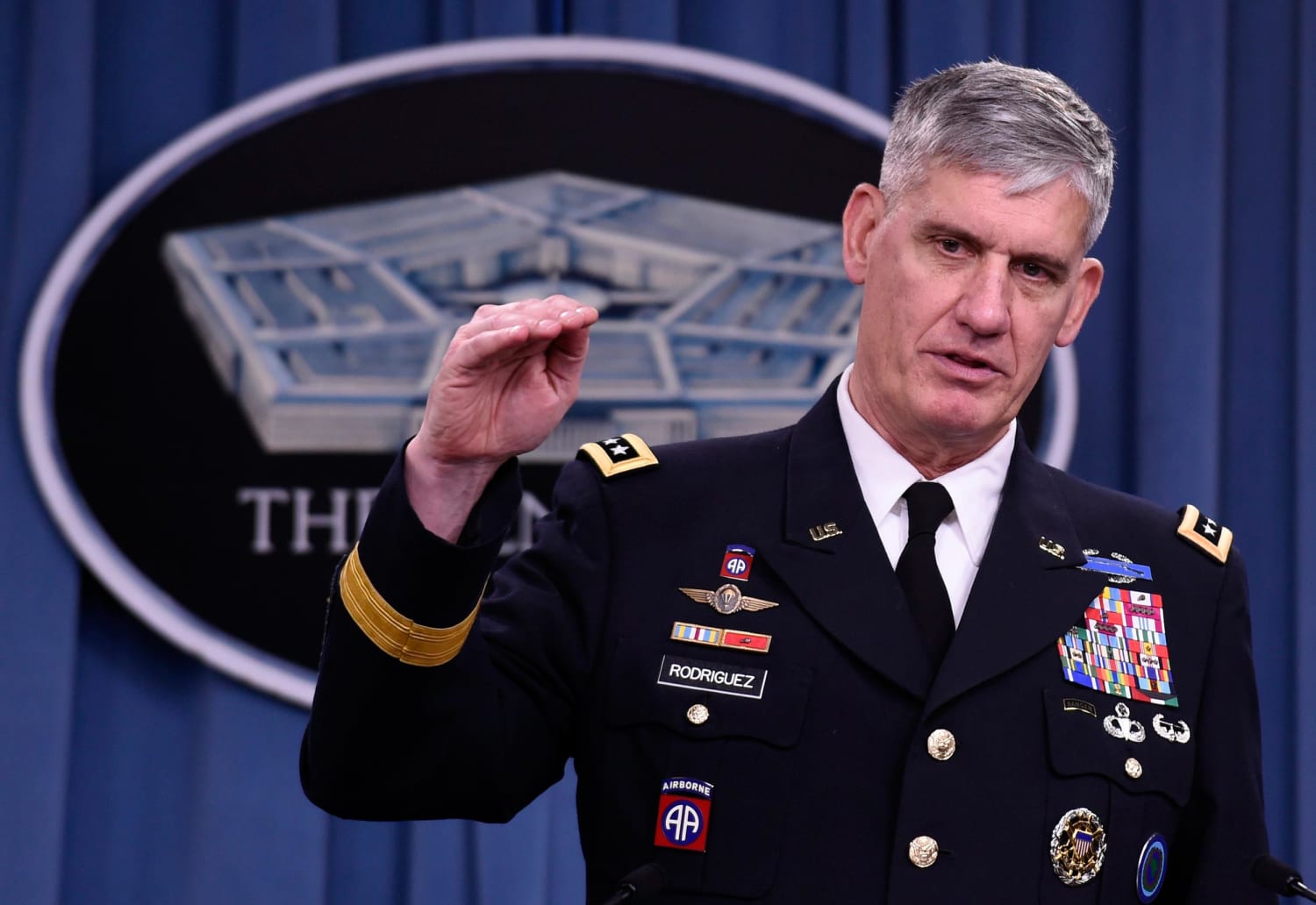
The conflict has left more than 13,000 people dead and one million homeless.
Gen Rodriguez
said the Islamists’ gains on the battlefield are cause for concern and
“the number of people displaced from their homes is just staggering.”
“I think it’s
going to take a huge international and multinational effort there to
change a trajectory that continues to go in the wrong direction,”
Rodriguez said at an event organized by the Center for Strategic and International Studies, a Washington think tank.
Rodriguez said at an event organized by the Center for Strategic and International Studies, a Washington think tank.
“The Nigerian leadership and Nigerian military are going to have to really improve their capacities to be able to handle that.”
Rodriguez said the Nigerian military’s response “was not working very effectively and actually in some places made it worse.”
He added: “I hope that they let us help more and more.”
Nigeria’s
ambassador to the United States, Adebowale Ibidapo Adefuye, complained
in November that his country is “not satisfied” with US support for the
struggle against Boko Haram and that Washington has blocked the sale of
some military hardware over human rights concerns.
In a visit
Sunday to Lagos, US Secretary of State John Kerry said Washington was
“prepared to do more” to help Nigeria counter Boko Haram.
Nigeria has the
largest army in west Africa but has come under criticism at home and
abroad for failing to stop the advance of Boko Haram.
The United
States was working with Nigeria to build a comprehensive strategy
“across the board, not just military,” that encompassed education,
economic development and health care to address the needs of the
population in the north, the four-star general said.
Another “big focus” was to bolster the country’s intelligence gathering, added Rodriguez.
No comments:
Post a Comment